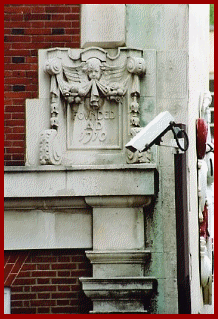| ||||||||||||||||||||||||||||||
Welcome to the | ||||||||||||||||||||||||||||||
 | ||||||||||||||||||||||||||||||
 | ||||||||||||||||||||||||||||||
All you need to know about lenses, | ||||||||||||||||||||||||||||||
We’ve already looked at super telephoto 'catadioptric' lenses, but there are a few others also worthy of mention. Normally only available as an auto iris configuration, they often need to be ‘stopped down’ a bit before the optical performance begins to lift. So although they are capable of working under very low light conditions, their higher cost and limiting optical performance, often make standard optics with increased lighting, a preferable option wherever possible. Special Infra Red lenses are designed to maintain stable performance under near IR lighting conditions; some are optimised for Infra Red only, whilst others are designed for use with Day - colour / Night Black and White (IR) switchable cameras, so that the focus is maintained at the correct point no matter what frequency of light is available. Whilst significantly more expensive than normal lenses, quality models do provide a dependable and stable performance under a wide range of viewing conditions. Range extenders which have already been mentioned, can be used between the lens and camera to double the focal length of most optics; these are generally not suitable for wide angle lenses, but tend to work best when used on Telephoto or Zoom optics. It's important to note that range extenders (also called Tele Convertors in photographic circles) not only double the magnification of a lens, they also double the imperfections in its optical quality, so an average o.k. lens can suddenly become significantly yuk, when an extender is fitted. In addition, they also half the amount of light passing through the lens at any given aperture. Germanium lenses, are not actively cultivated in an english country garden, but rather an extremely specialised type of optic used on thermal imaging cameras, which resolve images under higher Infra Red heat frequencies, rather than visible light. Perhaps the most specialised of optics are 'non browning' lenses, which are constructed from treated glass that resists the effects of radiation, and so are ideally suited for use in key medical and nuclear applications. | ||||||||||||||||||||||||||||||
 | ||||||||||||||||||||||||||||||
IMPORTANT: No material may be reproduced, copied or redistributed from this site, © doktorjon.co.uk 2004 - 2008 Homepage...:...Gateway...:...Technical Gateway....:....Quickfind Index....:....Equipment Directory | ||||||||||||||||||||||||||||||

